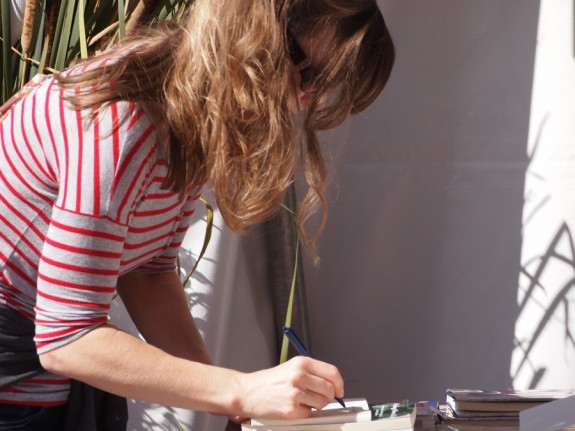Starting your online platform can be daunting, and it seems everyone an opinion on how to do it “right.” But the truth is, the best place to start your platform is where you feel most comfortable and naturally strongest. Platforming is simply putting forth an organized, focused effort to connect with your target readers. It’s not about following a formula or chasing trends. It’s about finding your voice, sharing genuine connection, and being consistent. This advice is hardly new. But when you’re looking at all the information out there, it can feel both overly simplistic and uselessly complex. Don’t worry—you’ll find your legs faster than you think. Here’s a few questions to help you figure out what the best first step is for you.
What social networks are you already on?
Pinterest, Twitter, Google+? There’s tons choices out there and new ones keep cropping up. Forget about all that. To start, you’re better off focusing on the channels you already use. There’s a few reasons for this. Chief among them, you already know how these networks function, and that gives you a leg up on those channels compared to networks you don’t know. There’s plenty of time to experiment with others later, but when platforming itself is still new to you, give yourself the advantage of using a network you know.
How do you use your existing accounts?
Consider: Among the social network accounts you already have, where do you naturally gravitate between these accounts? How frequently do you visit them? How much time do you spend on them? What are you using them for? Maybe Twitter is just a place to get the latest headlines, but on Google+ you’re engaged in long comment threads. Or maybe Facebook is for connecting with your closest friends, while on Pinterest you geek it up collecting your favorite book covers. Hey, no judgment here—my Pinterest searches consist primarily of tattoos and protein smoothie recipes. But if all you do on Twitter is retweet, while on Facebook you post and comment and share for hours, you’ve got a clear indication which is the better network to start your platform. Build from where you engage.
Private or Public?
Subpoint to above—if Facebook is where you engage the most, but that’s because it’s also where you post pictures of your kids to share with your extended family, you may want to take this into consideration. It’s great to get personal when connecting with fans, but be wary of oversharing in ways you’ll regret later. In this case, consider starting your public platform on another channel, or at least starting a separate account for public platforming. And get those privacy settings set now before you need them.
What are your stats?
Platforming is also about bang for your buck. If you’re looking to start growth quickly, start where you already have the most significant following. So take a look at your stats—how many followers do you have on each platform? Likes vs. retweets vs pins vs. pluses? Comments? Shares? If you have a website or blog, click-throughs should also be a consideration, so look at your website stats, too.
What if I don’t have any social network accounts yet?
Don’t worry, it’s cool. But if you want to tap into the massive potential of the Internet to help you spread your writing, it’s definitely time to start some exploring. A good starting place? Take a look at the accounts of some of your favorite authors, blogs and writing organizations (like DIY MFA’s). What networks they are on? How are they using their accounts? Then, start an account on one to three networks. Don’t worry about platforming yet. Just visit frequently, play with the functions, and absorb what others are doing. You’ll start to naturally find your legs through exposure and experimentation.
Don’t worry if it feels strange at first or if you just can’t see the point—that’s how I felt about both Twitter and Pinterest before I got started. But once I got my feet wet, I grew to truly love them. With time and attention, you’ll find your own style for social networks, too.
As you get comfortable, start keeping platform in mind. These questions should help you figure out the place to get started … but never forget, a starting place is all this is! As you experiment, grow, and find what works for you, you’ll gain connections, build a following, and with time, expand into additional channels.
 By day, Emily Wenstrom, is the editor of short story website wordhaus, author social media coach, and freelance content marketing specialist. By early-early morning, she is E. J. Wenstrom, an award-winning sci-fi and fantasy author whose debut novel Mud was named 2016 Book of the Year by the Florida Writers Association.
By day, Emily Wenstrom, is the editor of short story website wordhaus, author social media coach, and freelance content marketing specialist. By early-early morning, she is E. J. Wenstrom, an award-winning sci-fi and fantasy author whose debut novel Mud was named 2016 Book of the Year by the Florida Writers Association.







